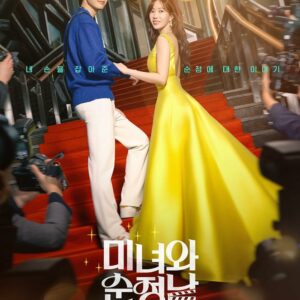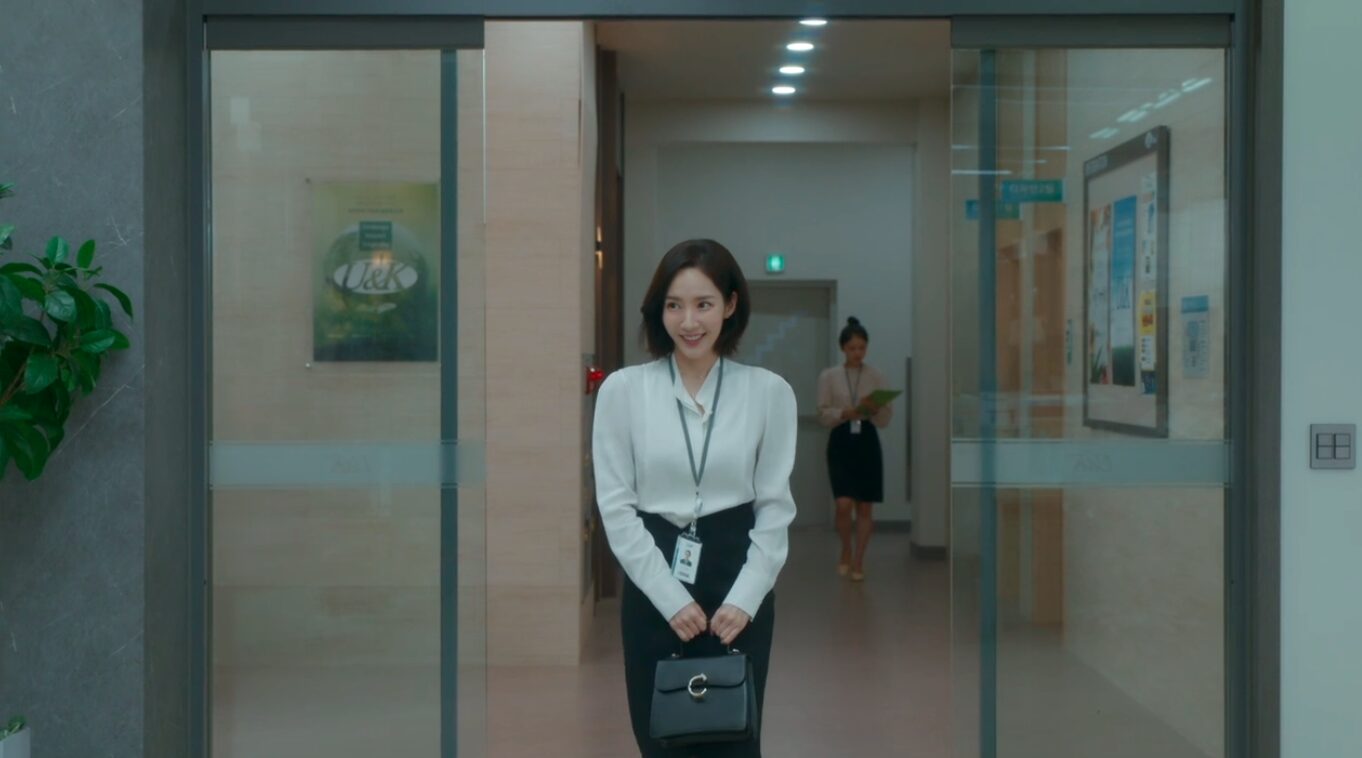Denial. Anger. Bargaining. Depression. Acceptance.
– The Five Stages of Grief
To heal you have to grieve. To grieve you have to accept. To accept you have to know.
Throughout its run, Beyond Evil has dealt with the corrosiveness that comes of never being able to grieve and heal because you don’t know what happened to a family member or loved one. All of our characters have been in a kind of limbo that comes from never being able to resolve their pain. And in these two episodes, we see how this corrosion has eaten through Park Jung-Jae. He has no memory of what happened on that night 20 years ago but the emotions caused by those events still eat at him from the inside.
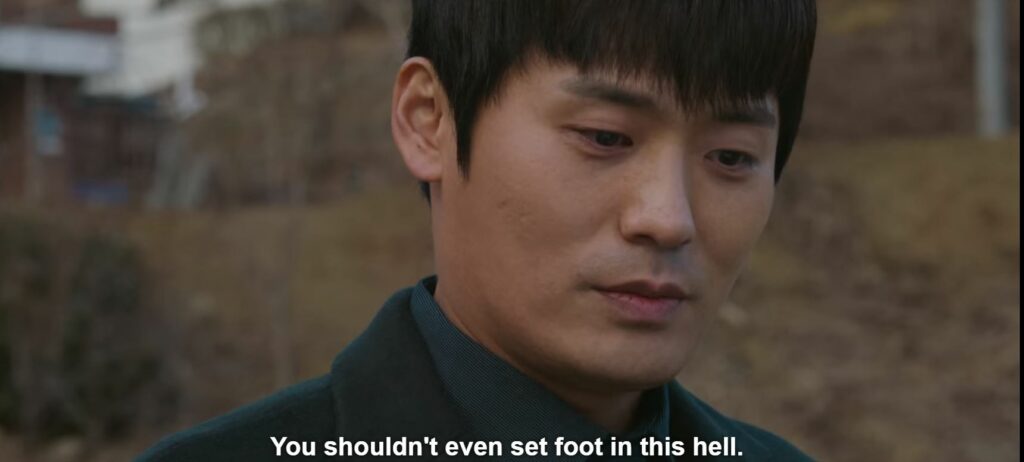
Don’t blame yourself. I know how it goes from my experience. Don’t even start. If you don’t get out of it quickly, every breath you take, every moment of your life becomes a nightmare. I live my life not knowing if I’m myself or someone else.
Park Jung-Jae
The murder of Chief Nam casts its shadow over the first hour as everyone comes to terms with yet another death. Joo-won feels responsible again, his machinations having set Chief Nam to asking questions he shouldn’t. He’s determined that his pursuit of the case will not risk any more lives. But with Dong-shik back in the game, the two can now try to find out what happened 20 years ago and how it resulted in what’s happening now.
In a week of some truly superlative dialogue, the two have a powerful conversation about the paralysis that has come from Dong-shik’s 20 years in purgatory and the slow and steady march of personal loss that has dogged his life. Almost everybody he has ever loved has been destroyed by the events of 20 years ago and the weight of that plays heavily upon him.
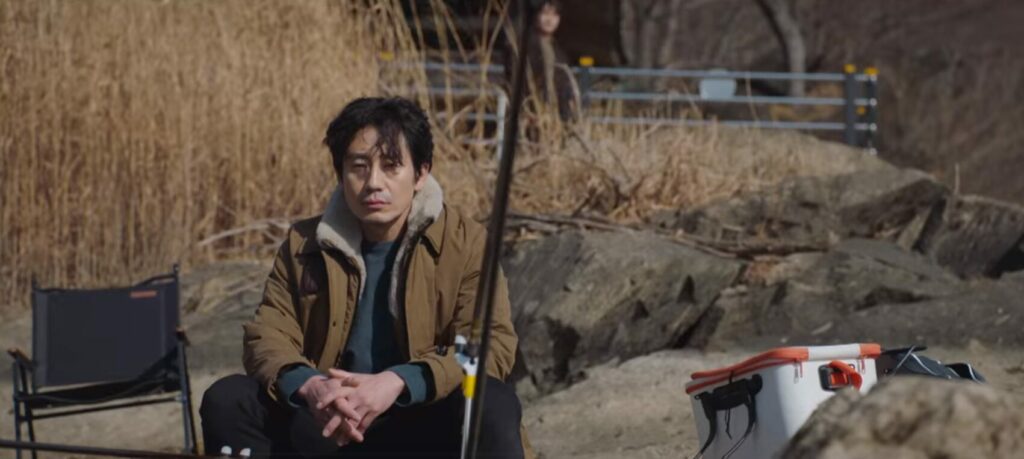
You know, when you stare at the surface for a very long time you can’t tell if the fish are pulling the float or if the wind and waves are pulling it. There are times when you’re not sure. If you pull out too soon, you’ll chase away the fish. And if you take too long, the fish will get away. Should I reel it in or not?
Lee Dong-shik
The time for watching and waiting has now passed. It’s time to move, even if it means your fish will try to get away. And even if you risk the possibility of more crimes and more deaths. Whether it’s the paralysis of the insider or the guilt of the outsider, it’s time to put that behind you and act because through that action is the only way that you will heal. And it’s the only way that you can avoid the hell in which Park Jung-jae resides.
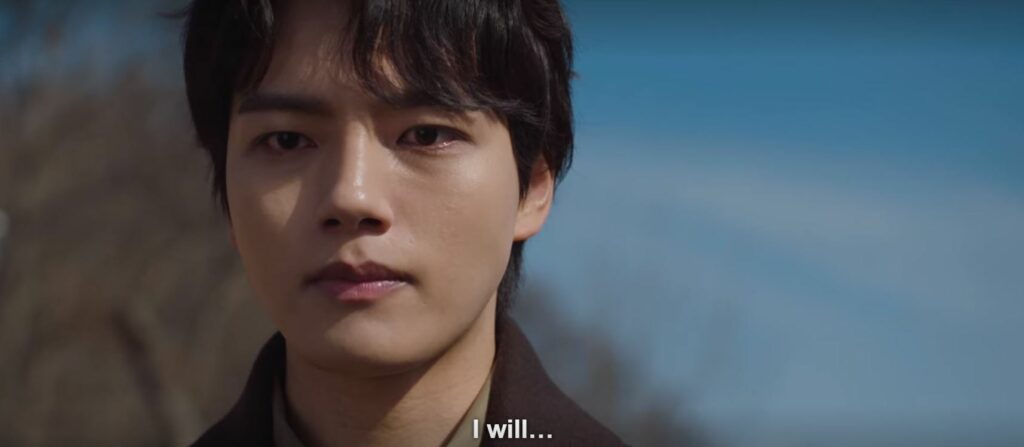
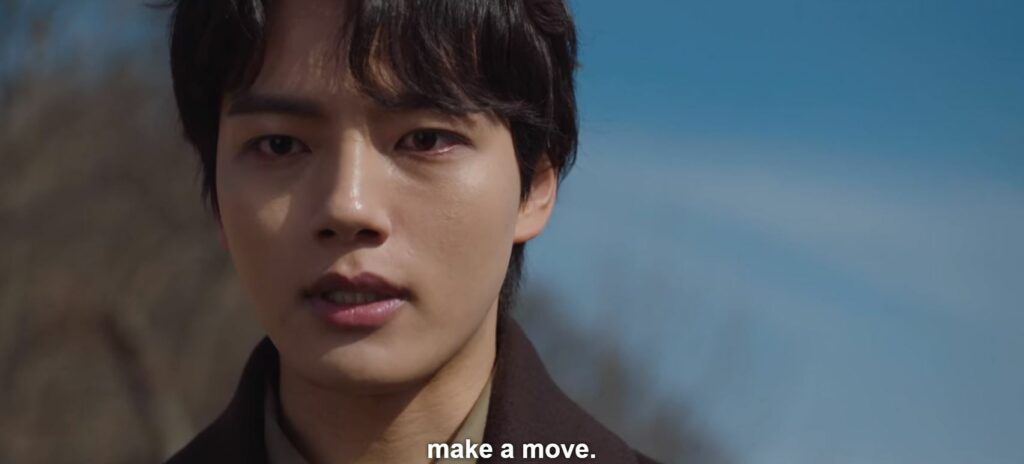
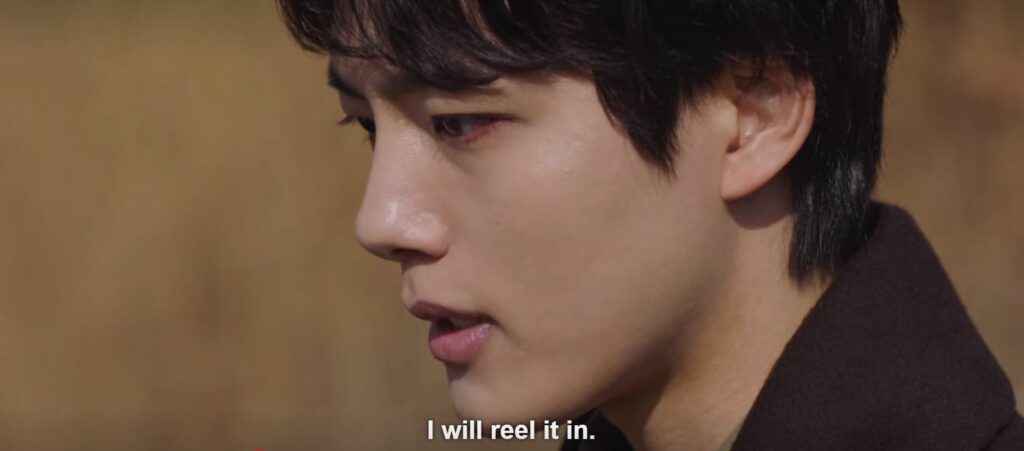
However, in this necessary action, Beyond Evil gets a little bogged down in procedure as our team tries to pull at all the threads they’ve been handed over the past few months. It’s a little more crime thriller than psychological thriller for my liking, as the newly-formed Scooby Gang moves systematically through each person involved to eliminate them from suspicion. This Scooby Gang includes Yoo Jae-yi and, while she’s smart, capable and a natural investigator, she is not a cop and her inclusion seems a little out of place.
In these episodes, the show also devotes too much air time to property developer, Lee Chang-jin: a thug who is comparatively blunt and one-dimensional. It’s not surprising he was drafted to do much of the dirty work over the last 20 years but that doesn’t make him interesting and his emotional journey isn’t particularly sympathetic. Certainly not as much as Jung-Jae who has been denied the chance to take responsibility for his own actions by his overbearing mother.
Which brings us to this week’s greatest – although not surprising – revelation. That the fawn that Jung-jae believes he hit with his car all those years ago was Dong-shik’s sister. And instead of allowing him to take responsibility for his own actions, she quickly and definitively covered it up and packed her son off to an asylum to be pumped full of psychiatric drugs. It’s no surprise that Jung-jae is so damaged, so confused and so clearly medicated. His mother responds to any suggestion her son might be remembering by getting an under-the-table script for psychotropics.
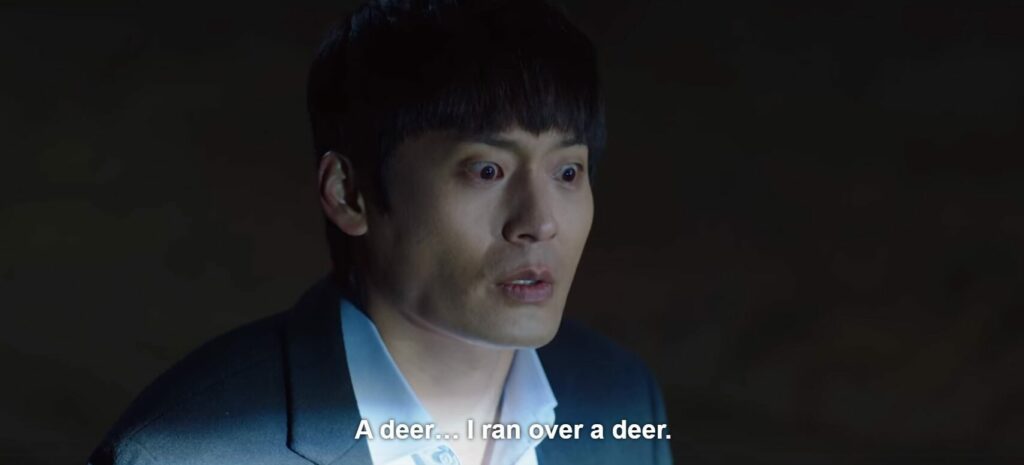
Other important revelations from this week centre around Joo-won’s ambitious and amoral father who confesses that one of Dong-shik’s colleagues, Cho Gil-gu, visited him before Chief Nam’s death to accuse him of ordering the framing of Lee Dong-shik in the murder of Bang Ju-seon 20 years ago (while he was the Chief of Munju Station).
With references to officers in the main Munju station and the Manyang substation both now and 20 years ago, the whole thing starts to get a bit confusing but it seems to have played out like this. The guitar pick found at the scene of the murder was sent to forensics and a fake forensics report sent back in its place. This report said the guitar pick had no fingerprints or DNA on it. However, because it belonged to Dong-shik he was arrested. The fake forensic report itself disappeared. Cho Gil-gu claims it was Joo-won’s father who gave the order to swap the reports. The former Chief Han (now Deputy Commissioner Han) of course denies this. However, a subsequent visit from Chief Nam himself proves that he believed it to be true. And he, of course, is now dead.
The tugging of the threads of responsibility and hierarchy soon pull apart the tapestry of lies woven over 20 years. Cho Gil-gu leads to current Munju Station Chief Jung who leads to Lee Chang-jin who leads to Congresswoman Do Hae-won. And so the tapestry of the events 20 years ago is complete.
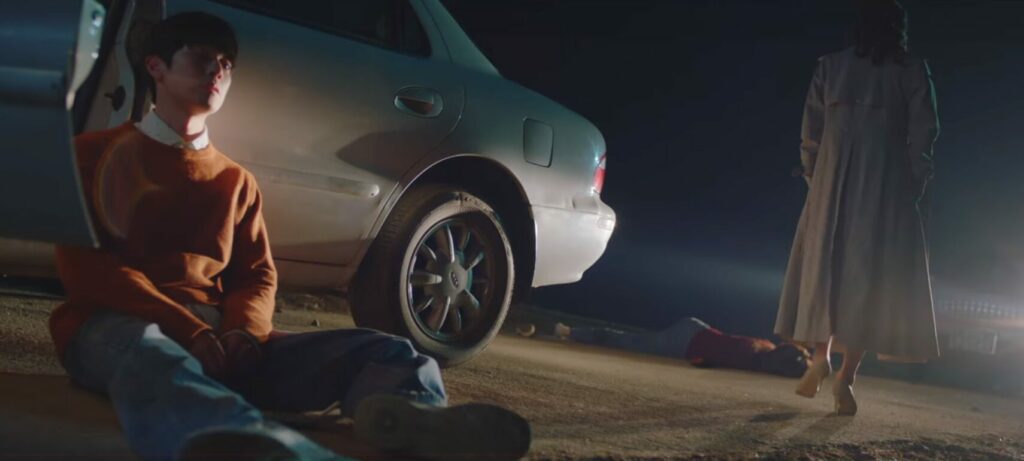
Or is it?
Choi Dae-hoon’s portrayal of Park Jung-jae’s unravelling this week is extraordinary. Shocking and painful and almost visceral as though his body itself is rebelling both against his historic crime and against its cover up. He is a man at war with himself: desperate both to remember and to forget. Stuck between the medicated, blank hell he’s been living in and the redemption of the truth.
It’s a masterful and heart wrenching portrayal of a man who’s learned to cope by disassociating himself from his own actions, his own emotions and even his own memories but whose eventual decision to bring his mind and body back together shows finally a path to healing.
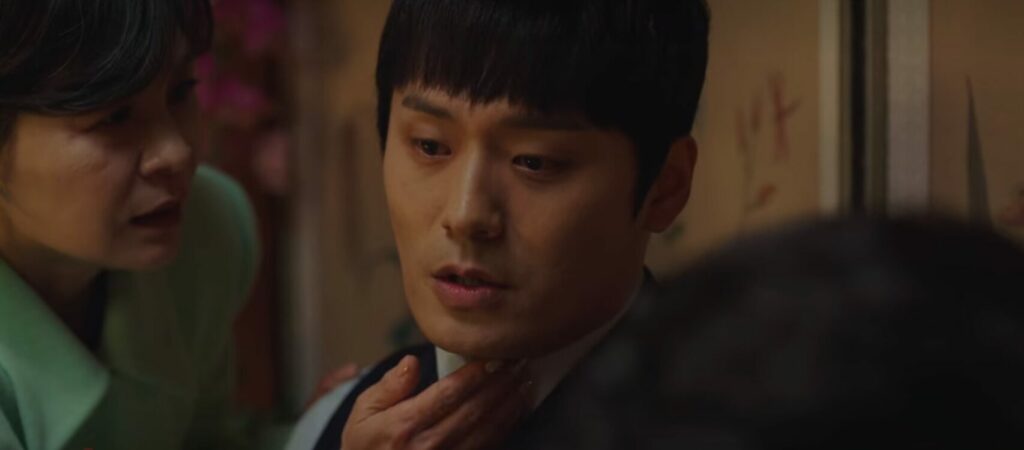
More importantly, Jung-jae’s embrace of his own memories leads our Scooby Gang to realise what the police would have realised 20 years ago if Congressman Do hadn’t been so desperate to cover up her son’s accident: that Jung-jae ran over Yoo-yeon’s body after she was already dead. Which means there is another culprit out there, one who has benefitted from all the lies and cover ups until now.
It’s probably not a coincidence that the episode ends with Jo-woon’s father finally being promoted to Commissioner General. He’s now the most powerful person in Korea’s police force. Which seems appropriate timing for the show to flash back to that night near Munju Deer Farm all those years ago. To Lee Yoo-yeon running sans fingers from Kang Min Jin-mook and being hit by a car… driven by the new Commissioner General. Han Ki-Hwan.


